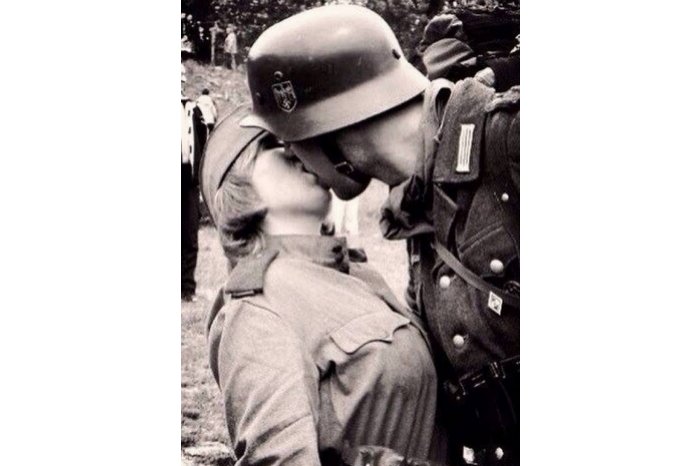Clash of Civilization (6)
16:25 | 04.08.2022 Category: Interview, Event
Chisinau, 4 Aug. /MOLDPRES/-Since 1940, with the break between Nazi Germany and the Stalinist USSR, a furious mutual preparation for war began. Both Berlin and Moscow understood that they could no longer advance in their territorial conquests unless they eliminated their former invasion partner.
Germany was clearly more prepared economically and militarily. The USSR had completed two processes grandiose in their scale - collectivization and industrialization, followed by accelerated militarization of the economy in 1938-1939. Moscow still needed at least two years to equip its army with modern equipment. Because of this, Joseph Stalin ordered his diplomats to continue to display a friendly policy towards Germany. The USSR continued to export huge amounts of grain, metal, fuel with the exact purpose of buying time. Moscow had even set the year 1942 for the start of the war and the decisive clash with the Wehrmacht army.
In Berlin they wanted to get rid of the Russian danger as quickly as possible, because they understood well what economic and military potential Great Britain and the USA have. The German generals knew very well the history of Napoleon's defeats, and then of the Triple Alliance who had to fight simultaneously on the western and eastern fronts. This situation had to be avoided at all costs. The task was that in half a year the USSR would capitulate, so that then Germany would concentrate all its forces for a decisive war against the British and the Americans.
The clash of the two dictators was inevitable for the simple reason that both regimes had the same values: total disregard for individual rights, racial supremacy, in one case, in another, the principle of class struggle. And the strongest feeling of both political adventurers was the thirst for world domination. The bloody show of hubris was about to begin.
In the headquarters of the Wehrmacht, the specifics of Russia were thoroughly studied. Poverty, lack of road infrastructure, long and hard winters. In the view of German experts, the only solution was a blitzkrieg conducted in the summer months to facilitate the penetration of the Soviet defense lines with the help of motorized brigades, the most efficient at that time.
The Soviet secret services informed during the months of April-June about the massive preparations of Germany for the invasion of the USSR. The dominant idea in Soviet historiography was that Stalin did not believe that his former partner in territorial conquests would attack his country. It's a fake. All archival documents declassified under Boris Yeltsin demonstrate that Moscow, desperate for delays in modernizing its army, nevertheless concentrated most of its divisions in the western part of the country. More. He also made the fatal mistake of deploying airfields and military depots near the borders, thus making them an easy target for German aviation.
On June 22, 1941, Germany attacked the USSR without declaring war along the entire length of its western borders, from the Baltic Sea to the Black Sea. In just three weeks, the Germans occupy a good part of the European territory of the Soviet Union and aim to occupy Moscow by autumn. The Red Army was poorly equipped, chronically short of food, and high-performance equipment was still in military factories in the Ural Mountains. Panic was palpable among the Soviet leadership. For several days no one in the military leadership could make contact with Stalin. Only on July 3, the Soviet leader read an appeal to the Soviet people on the radio, which implied some way out of the stressful situation and an attempt to organize resistance against the Nazi invasion.
Britain and the US understood that a convincing victory for Hitler against the USSR would greatly strengthen Berlin and give the Germans a very strong psychological advantage. The British and Americans recognize the USSR as an ally in the war against Germany and immediately offer it a consistent support channel - Lend-Lease, that is, the use of the Loan Act. Under Lend-Lease, the USSR received thousands of tanks, planes, trucks and millions of tons of wartime goods. Even though the communist ideology of the Kremlin tried to minimize the role of Lend-Lease, neutral experts qualified this aid as decisive in the battles in the immense Russian plains.
The Second World War does not fit into the patterns of civilizational conflicts. At first it seemed that the dividing line would run between the bloc of dictatorial states such as Japan, Italy, Germany and the USSR and the Western democracies. But the split was between two dictators who wanted world power - Stalin and Hitler. Because of these misunderstandings, the USSR found itself in the camp of democratic states, and from this moment many believed that Moscow would step alongside the allies on the path to democratization.
Thus, the USSR was transformed from an isolated communist state into a metropolis of a vast and rising communist empire. The victors in the Second World War stubbornly repeated the error of the end of the First World War, when the losers were territorially punished and the victors amply compensated. Then the foundation was laid for the undermining of the new world order. In just two to three years, tens of millions of people, against his will, went from democratic regimes to communist dictatorships where they lived for almost half a century.

